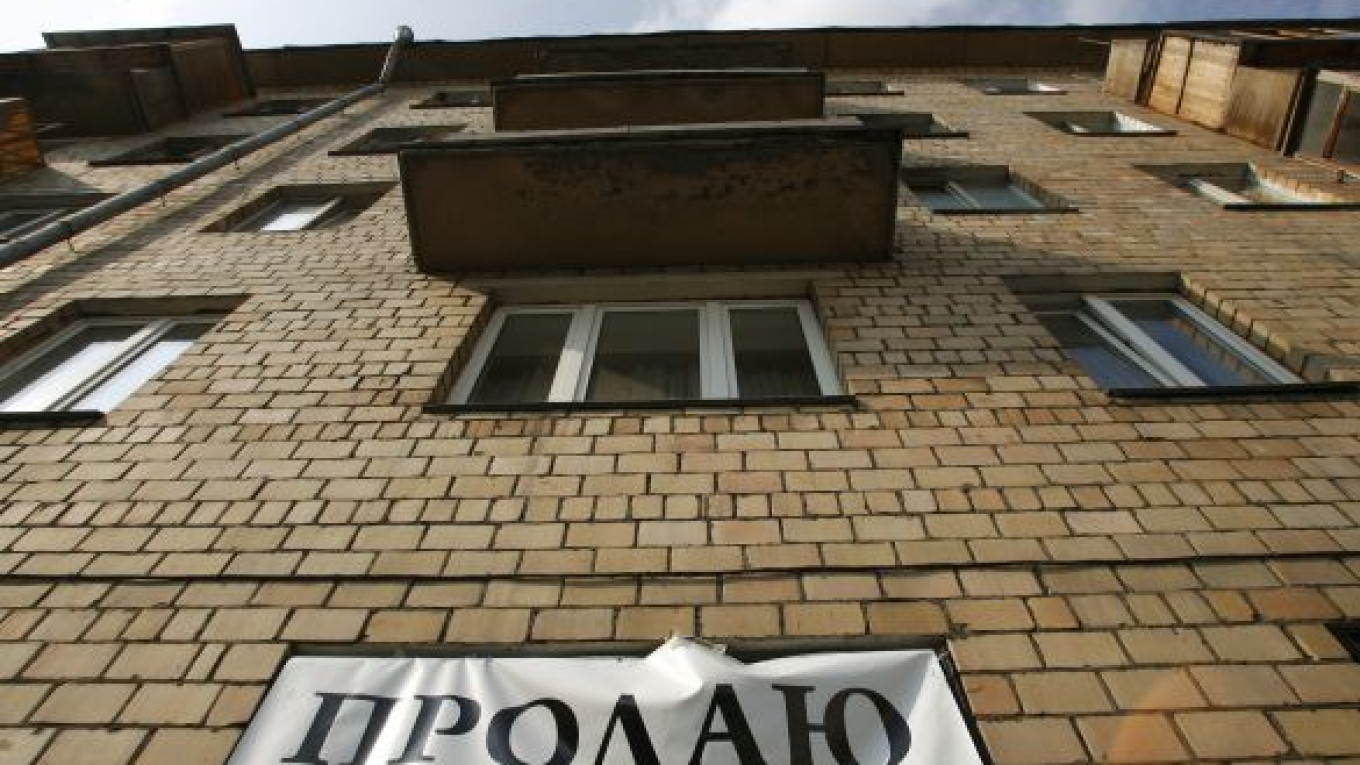The State Duma has extended the deadline for free privatizations of housing by three years, pushing back the deadline to March 1, 2013, after homeowners experienced difficulty completing the arduous process.
Critics of the extension say it could endanger cities' affordable housing programs, as residents of apartments currently owned by municipalities privatize them. But the Kremlin has backed the measure, and it sailed through the State Duma in all three readings Friday.
The amendments' authors, United Russia members Vladimir Gruzdev and Andrei Nazarov, said they hoped that the initiative would give homeowners another chance.
"Sixteen percent of those who wanted to privatize their apartments haven't done it so far. Some people missed the deadline because of the long procedure of formalizing documents, others — mostly military officers — had nothing to privatize because they hadn't received their apartments by the time that the process was to be over," Nazarov told The Moscow Times.
If the measure is approved by the Federation Council and signed into law, it will be the second time that the period has been extended. Apartment privatizations began in 1992 and were supposed to be completed in 2007, but the period was extended for three years because officials were not able to cope with the rush of people who wanted to have their housing privatized as the deadline neared.
"We hope that all people who want to have their housing privatized will meet the deadline this time," said Nazarov, who is deputy chairman of the Duma's Legislation Committee.
The construction of social housing declined by 90 percent because of the financial crisis, and some people received apartments later than they had anticipated. They will also have a chance to own their apartments after the amendments are signed into law, Nazarov said.
The extension will also allow World War II veterans to privatize their long-awaited apartments, which both President Dmitry Medvedev and Prime Minister Vladimir Putin have repeatedly promised would be ready by Victory Day, May 9.
In November, Putin also vowed to provide housing by 2012 for all military officers who have retired in the last 20 years.
Vedomosti reported last week that the Defense Ministry this year would take over a state program, previously handled by the housing and utilities fund, to buy up and complete unfinished housing as part of the government's anti-crisis relief to the construction industry.
People lost interest in the privatizations almost immediately after the first extension because they figured that they had three more years and began procrastinating, said Nikolai Fedoseyev, first deputy head of the Moscow City Hall's housing department.
"As a result, long lines appeared in the reception centers that were accepting documents for privatizations last year because people started filing applications at the last moment. It will happen again in 2012," he said.
Duma Speaker Boris Gryzlov pinned the blame on clerks last week, saying they were taking advantage of the situation to collect bribes.
But Fedoseyev contended that the amendments posed a threat to the city's stock of social housing.
"Only 18 percent of 3.8 million apartments in Moscow belong to the city. The rest are people's property," he said, adding that 183,355 applications for privatization were filed in Moscow last year, compared with 50,000 to 60,000 in other years.
People who want to de-privatize their housing will also be able to do that before March 1, 2013, Nazarov said.
Some people who are struggling to pay property taxes could stand to gain from giving their apartments back and renting them under affordable state housing programs. Some elderly apartment owners are also afraid that someone may do harm to them in order to take over their apartments, Nazarov said.
President Dmitry Medvedev said Saturday that the decision to extend the period for free privatization was very important.
"It's a human decision, absolutely," Medvedev said at the meeting with the heads of the four political parties that have seats in the State Duma. "I was repeatedly asked about that, and political parties appealed."
A Message from The Moscow Times:
Dear readers,
We are facing unprecedented challenges. Russia's Prosecutor General's Office has designated The Moscow Times as an "undesirable" organization, criminalizing our work and putting our staff at risk of prosecution. This follows our earlier unjust labeling as a "foreign agent."
These actions are direct attempts to silence independent journalism in Russia. The authorities claim our work "discredits the decisions of the Russian leadership." We see things differently: we strive to provide accurate, unbiased reporting on Russia.
We, the journalists of The Moscow Times, refuse to be silenced. But to continue our work, we need your help.
Your support, no matter how small, makes a world of difference. If you can, please support us monthly starting from just $2. It's quick to set up, and every contribution makes a significant impact.
By supporting The Moscow Times, you're defending open, independent journalism in the face of repression. Thank you for standing with us.
Remind me later.


